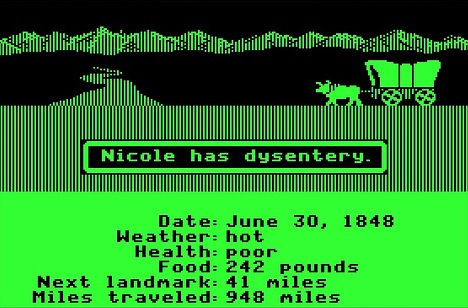This post has not been edited by the GamesBeat staff. Opinions by GamesBeat community writers do not necessarily reflect those of the staff.

If you grew up (or raised a child) any time between the 1970s and early 2000s, chances are you’ve played an educational video game. Whether it was one of the many Carmen Sandiego titles or a classic like The Oregon Trail, there’s probably at least one piece of “edutainment” in your past. But let me ask you this: How many of these learning tools would you still find fun today? Where is the balance between fun and learning, and why does it seem so hard to combine work and play?
I have to assume it’s because there are so few examples of good design in edutainment games. If no one is quite sure what something should look like, it can be difficult to actually make it a reality. So far, most of these developers have gone out with the clear intention of making something educational, and that is what needs to change.
Part of the huge potential that games have as a teaching aid lies in their ability to allow people to learn things on their own. While there are plenty of games that beat the player over the head with questions and facts, few educational titles simply present a problem and task the users with solving it themselves.
You’re not going to be told how to play The Oregon Trail, you just have to learn. What pace do you go at? How often do you rest? How frequently do you go hunting? I can almost guarantee you’ll fail many, many times before you make it to Oregon, but that’s the idea. While you’re lamenting the death of little Bobbie Jo to dysentery, you’re actually learning about the real Oregon Trail in a way that’s impossible for a textbook to replicate.
The same can be said for plenty of other traditional video game franchises as well. How better to look at the possible effects of various government systems than to play Tropico? You can also try your hand at managing a business in one of the many different Tycoon games. Maybe you could learn a bit of geography and history through one of Paradox Interactive’s historically accurate real-time strategy titles, or even simulate real battles and learn strategy with Total War. It may be a bit of a stretch, but it’s possible that games could someday be used to teach alongside books.
Integrating video games into every subject, class, and school in the United States may be a ways off, but using them to increase learning doesn’t have to be. Maybe not every video game has educational value, but there are far more than most people realize. It’s just a matter of finding and utilizing those that do.
Ever learned something from a video game? Tell us about it in the comments!
